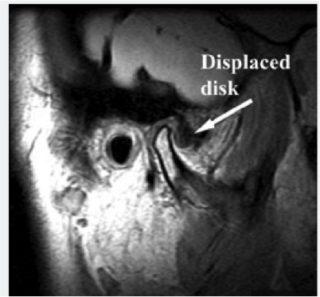
More Dental Health Articles
How To Integrate TMJ Disorder Into Total Healthcare

It would be really great if your PCP (primary care physician) would recognize that in the process of doing the yearly exam for a patient, they should consider looking at the TMJ (temporomandibular joint). It really would only take a few seconds to see how big the person can open their mouth and to palpate the jaw joints for any popping or clicking. If the patient does not open very big, and the jaw joints sound like Jiffy Pop popcorn on the stovetop, then there is likely a TMJ problem that should be dealt with.
Another part of TMJ screening is to just ask the patient if they are having any headaches, neck or back pain, and perhaps sleep issues. All these problems potentially come from slipped discs in the jaw joints. A simple MRI would help diagnose what is going on. The problem is that a good MRI may not be that easy to come by. Unfortunately, a proper MRI of the jaw joints has been somewhat elusive for some reason. Too many times the dentist or MD gets a report back saying the discs all look fine and there is no displacement, yet this does not correlate well with their symptoms of pain. Perhaps the MRI center just does not do these types of studies all that often, so they are not familiar with positioning the patient in the machine or how to read the results.
As you can well imagine, getting the right imaging is not all that easy. This is probably why most MDs do not order this imaging when a patient reports head and neck pain. Did you know that if the jaw joint discs are out of place, then this can cause severe pain in the head/neck region? It most certainly can. This may be the reason why it will mostly be the dentist who can identify the TMJ problem, but from there finding the right specialist to diagnose the problem can get a little tricky. Even if the regular dentist orders an MRI due to the suspicion of a TMJ problem, if that MRI is not done just right, the diagnosis can be easily missed.
What we really need is more awareness of the problems that the TM joint can cause and make more MDs and dentists aware of the need for proper diagnostic tools. You can’t just order an MRI and hope they find the problem. The doctor- whether dentist or MD- really needs to know a little about what TMJ disorder is all about, but then have a go-to person who can really dive into the details and figure out the problem.
This “awareness” is slowly happening in the professions, albeit a bit too slowly. The physicians are becoming more aware of the TMJ specialist, and the dentist are figuring out that is really not as easy as they thought and the specialist is the way to go.
Other Articles You May Find of Interest...
- Let’s Smile Dental’s 7&Up Club
- Strengthening Smiles: Understanding the Importance of Splinting Periodontally Involved Teeth
- Understanding Soft Tissue Grafting: A Key To Periodontal Health
- New Solutions for Dentures and Dental Implants
- Benefits Of Immediate Dental Implants
- Preventing Tooth Injuries During Your Child’s Active Summer
- How New Tech In the Dental Office Benefits You

















